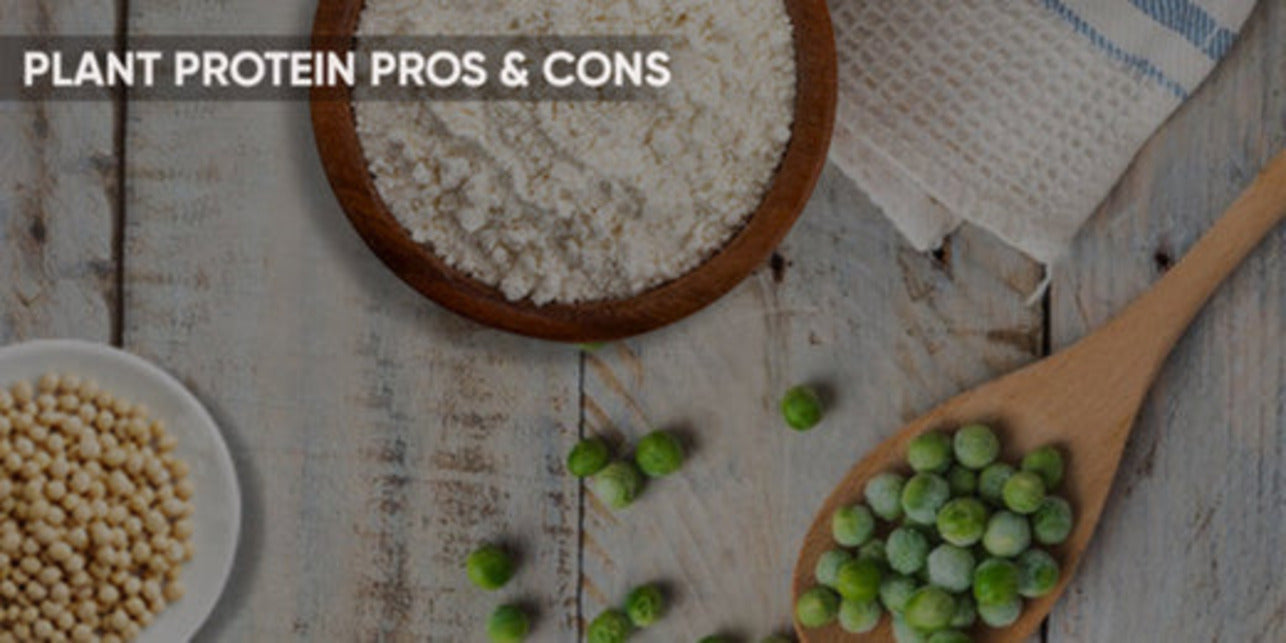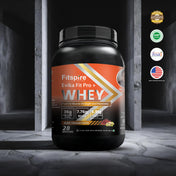Protein supplement is one of the healthiest and most efficient protein sources to secure your daily protein needs. In recent times, many bodybuilders, fitness enthusiasts, influencers, and athletes started consuming plant-based protein powders over whey isolate or animal protein during their fitness routine. Plant-based protein powder generally includes protein sources from soybeans, legumes, green peas, chia seeds, quinoa, hemp seeds, spirulina, lentils, and brown rice. It is a myth that plant-based proteins contain fewer essential amino acids. If you are willing to try or switch to plant-based protein powders, you will find that they offer a variety of nutrients that contain high-quality protein and impressive amino acid counts. The most common and popular plant-based protein powders are:
- Soy Protein: Soy protein is considered the best plant-based protein because soy is an excellent source of glutamine and amino acids.
- Pea protein: The absorption of pea protein is good as compared to Whey Protein Powder. But pea protein is an incomplete protein so to reach full effectiveness it should be paired with another protein source.
- Rice Protein. Brown rice protein is high in fiber and vitamin B and it is naturally free from lactose and gluten. Rice protein should be consumed with pea protein or any other plant-based protein.
Pros of Plant-based Protein Powder
- High in Phytonutrients: Phytonutrients refer to the elements or compounds present in the plant which promote good health. Plant-based protein powders provide additional benefits of these nutrients and help you achieve your fitness goals.
- Strengthens Immune Health: Plant-based protein powder does a fabulous job of boosting immunity. They protect you from infections and strengthen your immune function.
- Lactose-free: If you experience difficulty in digesting lactose or are severely allergic to it, you can switch to plant-based protein powder because they are dairy-free.
- Rich in Fiber: Plant-based proteins are naturally rich in fibre which provides good gut health and a better and smooth digestive system.
- Vegan Friendly: Plant protein powders are an ideal supplement option for vegetarians and vegans who may not get enough protein through the whole foods they consume.
- Promotes Weight Loss: This Whey protein powder contains high-quality protein and dietary fibre which provides you fullness in fewer calories. They prevent frequent cravings and promote fat burning.
Cons of Plant-based Protein Powder
Less Absorption of Protein
Plant-based proteins are less easily absorbed by the body than animal proteins. Therefore, you should increase your intake of vegetarian protein to compensate for the reduced intake in your body. But, if the product contains digestive enzymes, your win-win situation is likely to remain!
Deficiency of Vitamin B
Since vitamin B12 is primarily obtained from meat and dairy products, vegetarians are more likely to be deficient in vitamin B12. However, you can be smart by checking the ingredients label of the product to be sure about B vitamin sources.
Incomplete Protein
Plant-based proteins are often incomplete and that's why they should be consumed in combination to fulfill the protein requirement. And, make sure you check the quantity of protein per serving!
High in Carbs
Some of the plant-based proteins are high in carbohydrates and not ideal for those who are following a low-carbohydrate diet.
Expensive
Plant-based protein powder might be expensive compared to Whey Protein Powder. However, this myth is busted by Fitspire by offering plant protein powder in chocolate flavour at a competitive price.


